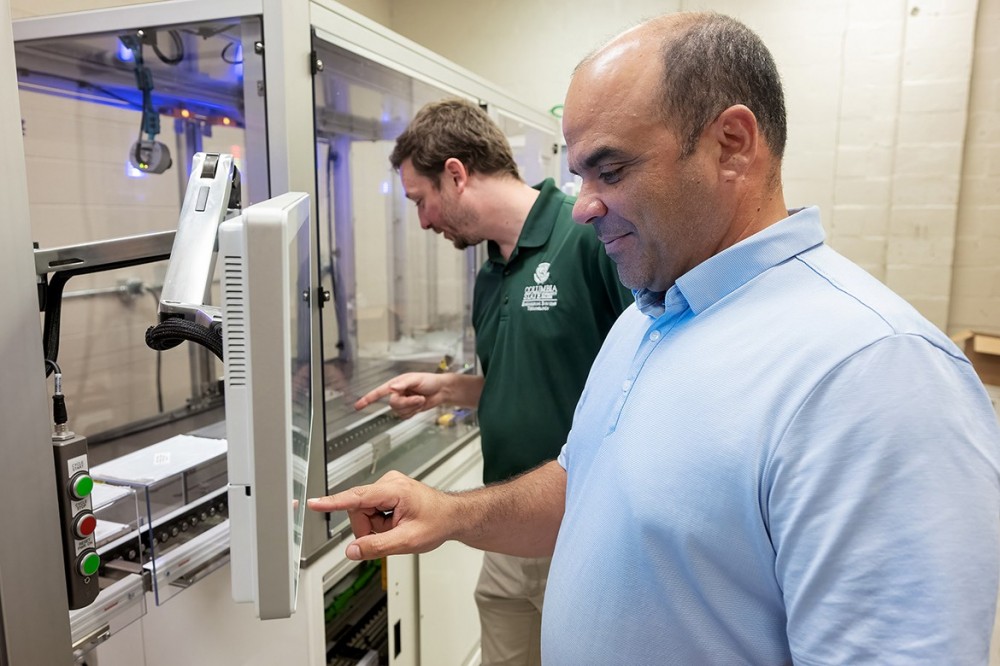MURFREESBORO, Tenn. — A National Science Foundation grant collaboration between Middle Tennessee State University and Columbia State Community College that will assist the Midstate region in certifying future technicians and engineers in robotics and automation systems.
The nearly $350,000 NSF grant, announced earlier this year, is a three-year research and development award that continues until May 31, 2027. It was awarded to Columbia State, but MTSU’s Jorge Vargas, Engineering Technology associate professor, is principal investigator for the university.
The grant comes a year before MTSU’s engineering programs — including mechatronics engineering, robotics and others — move into the new, $74.8 million, 90,000-square-foot Applied Engineering Building, scheduled to open by the fall 2025 semester with greater space and state-of-the-art equipment to better train current students and attract more prospective ones.
“We’re extremely excited to work on this robotics certification project,” Vargas said. “It’s a matter of developing different modules for this certification mapping. There are different topics or subjects for students to do in the field after they get certified.”
The goal of this project, which was started in 2022 by Vargas, is to get certifications to technicians and engineers so they can be competitive in the work field, he said.
Vargas was joined in the effort by Daniel Garrett, a Columbia State adjunct faculty member and former MTSU Engineering Technology graduate student to establish a one-year robotics certificate at Columbia State.
MTSU faculty will bring their extensive knowledge in robotics and automation through the partnership with Columbia State. Vargas and Mehran Mostajir, dean of the Department of Business and Technology at Columbia State, hope their students earn an associate degree and transfer to MTSU to pursue their bachelor’s.
Vargas said MTSU’s portion of the grant, around $100,000, will be used to prepare modules and “help me build the curriculum.”
The proposal by Garrett, who is now at Northwest Florida State College in Niceville, Fla., indicates the first group of students “will enter the program in spring 2025 and graduate by the end of the year with nationally recognized industry certifications and 16 hours of college coursework.
“Hands-on methods and classroom instruction will ensure that each student can perform programming, maintenance, setup, safety evaluations and operations with different robotic systems. As a result, Columbia State graduates can go directly into workplace settings with confidence.”
As for the impact, Vargas said “we have 500 students in Engineering Technology. It could impact 500 people… It is open for everybody as long as you have an interest and background.
“We haven’t advertised or promoted it yet. We plan to do it in the spring when we get the modules set. I’ll talk about it in my classes and other professors will do the same. We’ll reach out to the sophomore and junior classes for sure.”
When asked how much growth is anticipated in the use of robotics in industry — auto (General Motors) and automation companies like UPS, FedEx, UPS, Amazon and others — Vargas said, “That’s a tough question. For sure, it will have a major impact in industry in our state. We’ll have more people certified in robotics and everything is moving to automated.”
Vargas said the MTSU-Columbia State collaboration will benefit these companies because their future employees can get certified without going out of state and promoting it to people in the field.
Engineering Technology is one of 11 College of Basic and Applied Sciences departments.





